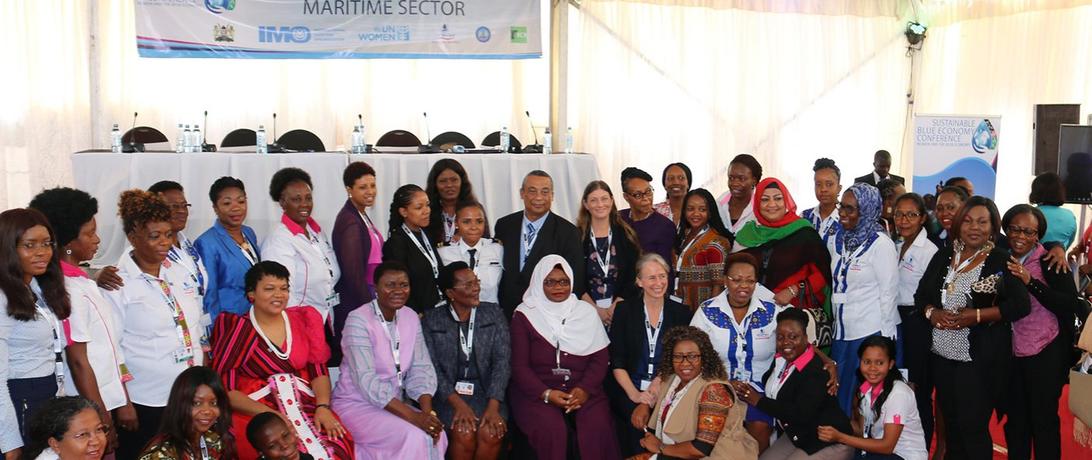
Kenya has worked to develop a strong Blue Economy, through the employment of women, to counteract the radicalizing effects of poverty along the Mombasa coast.
This is the second in a series of three blogs excerpted from our recent report on women in the maritime domain, designed to highlight the role of women in maritime industry and governance as well as the intersection of Women, Peace and Security and the maritime space.
In recent years, Kenya and its coastline have been a target of destructive terrorist attacks, facilitated primarily from the sea as a conduit for the weaponry and perpetrators. Some of the latter were embedded among the coastal communities in preparation for the terrorist attacks. Susceptible to radicalization due to low incomes and lack of viable futures, the coastal communities presented an easy entry point for recruitment by criminal gangs. To counter this risk of instability, the Kenyan government launched a cohesive strategy comprising aquaculture, seafaring, and the launch, in 2018, of a national Coast Guard. Significantly, women are among the key maritime players in Kenya and the principal Secretary of Maritime and Shipping Affairs, Nancy Karigithu, who is a Governor of the World Maritime University, was voted African Union Woman of the Year 2019.
On the coast south of Mombasa, women have been employed on a project to develop seaweed farms. The communities have been offered viable income-generating activities through the export trade of seaweed products, which include cosmetics, soap, creams, and shampoo. Managed by women, the project offers productive livelihoods for young adults and men during the lull in the fishing season.
The security of the Kenyan coast extends beyond its coastline. In 2016, the Business Daily Africa reported that Kenya lost an estimated KSh10 billion (US$100 million) in revenue, annually, due to illegal fishing alone. In October 2018, the government launched its Coast Guard, responsible for patrolling Kenya’s territorial waters to prevent unlawful fishing, piracy, human and drug trafficking, smuggling, and environmental damage. Further employment for women is being created at the local level by the government initiative to develop a number of fishing ports—and to publicize an Eat More Fish campaign, which revolves around improving nutrition outcomes and food security by encouraging women to incorporate fish into their family diets.
The government is reviving the state-owned Kenya Shipping Line in partnership with the Mediterranean Shipping Company (MSC) and positioning the Blue Economy as a key to job creation and a powerful economic driver. In a groundbreaking decision, both women and men, navigators and engineers of the future, will be trained at the new Bandari Maritime Academy in Kilindini Port. Kenyan students, including a large number of women, will be employed on board the MSC vessels. The multiplier effect of this initiative will provide a robust benefit to coastal women and their children in particular: it is estimated that of the current recruits to this initiative, 42 percent are from Kilifi, on the Mombasa coast, and Kualu.
Kenya’s first female marine pilot, Elizabeth Marami, exemplifies the linkage between maritime safety and gender. She has launched an online platform for women in the maritime industry called Against the Tide, to provide “a glimpse into the experiences and travails of a female seafarer and how they are charting their path in this profession.” Nonetheless, one interviewee stated that while higher-ranked women in maritime remain an exception, circumstances for women working on board remain challenging, and they face additional difficulties to their male counterparts.
Article Details
Published
Topic
Program
Content Type
Opinion & Insights